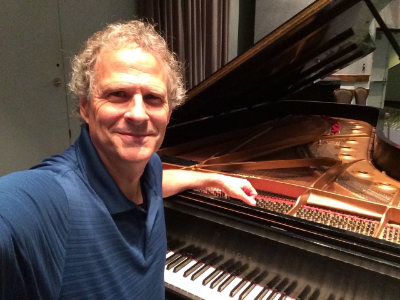Serving the Akron/Kent and Youngstown areas.
About Me

I have been in the piano maintenance business since 1979. I began my apprenticeship in Chicago in 1978, and worked as a professional technician there for 23 years. My clients included Northeastern Illinois University, Holy Name Cathedral and Lake Forest College. I was also one of two techs at Moody Bible Institute, DePaul University and University of Chicago. In 2001 I moved to Stow, Ohio. I have maintained the 85 pianos at the Dana School of Music at Youngstown State University since 2004, as well as over 300 private clients, churches, and schools.
Services & Pricing
| Service | Price |
|---|---|
| Basic Piano Tuning | $150 |
| Piano Tuning Including Pitch Raise* | $200 to $250 |
| Regulation Grand Piano | $1000-1400 |
| Regulation Vertical Piano | $800-1000 |
| Piano Repair Work | $75/hr |
| Piano Inspection | $75 |
| Grand Climate Control System | $600 |
| Vertical Climate Control System | $550 |
| Annual Climate System Maintenance (clean unit & change pads) | $35 |
Payment Options
I accept payment with cash, check, credit card, Venmo, Zelle, CashApp, ApplePay, or Paypal.
Contact
Call or email me with any questions, or to set up an appointment:
Phone: 330-289-1656
Email: kirkwoodtuning@att.net
FAQ's
Why does my piano go out of tune?
Humidity change is the single biggest factor in causing a piano to go out of tune. That is one reason why I recommend that you place your piano away from any heat sources, fresh air streams, or sunlight. No matter where your piano is located you still have to contend with seasonal humidity changes. In Ohio relative humidity ranges from 80 to 90 percent in the summer to below 30 percent in the winter. Even with air conditioning the humidity in your home can vary enough to cause your piano to go out of tune.
How Often Should I Have My Piano Tuned?
I recommend that your piano is tuned at least once per year. Because of the seasonal changes from summer-winter-summer, you may want it tuned twice per year so it is well-tuned all year round. Whether once or twice, the ideal times are January and July because the humidity is stable and you will enjoy several months of stable tuning before the next weather change.
What is a piano touch regulation?
Piano regulating is the process of restoring the piano action (the part you play) to its original specifications. There are two goals to regulating: 1) to get rid of any unnecessary friction in the action, and 2) to reset the action to factory specifications so that the piano feels and plays like it did when it was new.
The process on a grand piano takes about 1.5 days and involves 32 steps performed on all 88 keys. Usually this process can be done in the home. For upright pianos a regulating can usually be done in one day. Regulating includes a tuning and hammer voicing, ensuring the piano sounds its absolute best.
Most clients that have this done to their piano remark how amazing the piano feels, how easy it is to play, and how much more enjoyable it is.
Cleaning Your Piano
Cleaning Your Piano's Keys
Don't be afraid to clean the white keys on your piano. Take a damp cloth and a mild soap, like dish soap. Wring out the cloth well and rub out accumulated dirt stains. Make sure no water seeps down the sides of the keys. After cleaning with a damp cloth wipe the keys with a dry cloth.
Cleaning the finish
Modern piano finishes do not need polishes or waxes. Polishes and waxes can actually cloud up the finish and in some cases damage it. Never use an aerosol spray on your piano. Dust can scratch, so when you dust your piano, dust lightly. A feather duster works well, or start with a damp cloth and finish with a dry one. If heavier cleaning is necessary to remove finger prints and smudges, start by dusting and then use a mild cleaning solution with a lightly damp cloth. Try to clean in the direction of the wood grain and with long strokes.
For more detailed info on piano finishes and cleaning visit the Piano Technicians Guild page.
Cleaning under the strings
One question I get asked a lot is how do you clean under the strings on a grand piano. If the dust has been there for a long time and has settled firmly, have me clean it for you. There is a certain process for cleaning under the strings and removing settled dust. If you have a new grand piano and want to keep it dust free, forced air will blow the dust to the back of the soundboard where it can be wiped up. If you don't have a vacuum cleaner with the capability to blow a strong stream of air, take a deep breath and try blowing it out with your own breath. Blowing loose dust with your breath can work quite well, but be warned that you may end up inhaling a little dust when you take another breath.
